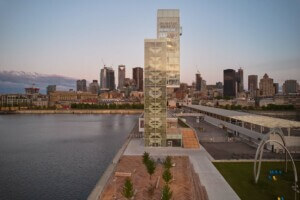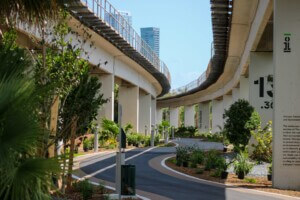In 1996, Royal Caribbean and Wilson Butler Architects (WBA) embarked on a simple mission: Provide the “best family vacation on the planet.” Since then, the pair have put out into the ocean blue 24 hulking cruise ships that would make Captain Cook blush.
Flash forward to last year, the Boston architecture office and Royal Caribbean hit a major milestone. After over 25 years in business together they can claim the world’s largest cruise ship, Icon of the Seas. And today, Royal Caribbean International, a Miami-based corporation, controls almost 20 percent of the global cruise market.
Icon of the Seas made its maiden voyage in January sailing from Miami to Finland, where Royal Caribbean’s ships are assembled. The leviathan has capacity for 5,600 passengers and 2,350 crew members. It’s almost the same length as the Empire State Building, except it’s turned on its side and, well, can float. The ship is so big, it weighs five times more than the Titanic.
“Designing a ship isn’t that different from designing a building on land,” said Scott Butler, WBA founding director. “It’s like designing a building in a constant state of seismic activity. Master planning a ship is just like planning a city.”
Toward this end, Icon of the Seas has “neighborhoods.” These uniquely programmed areas of the vessel are titled Aquadome, Thrill Island, Chill Island, Surfside, the Hideway, and, last but not least, “Central Park.”
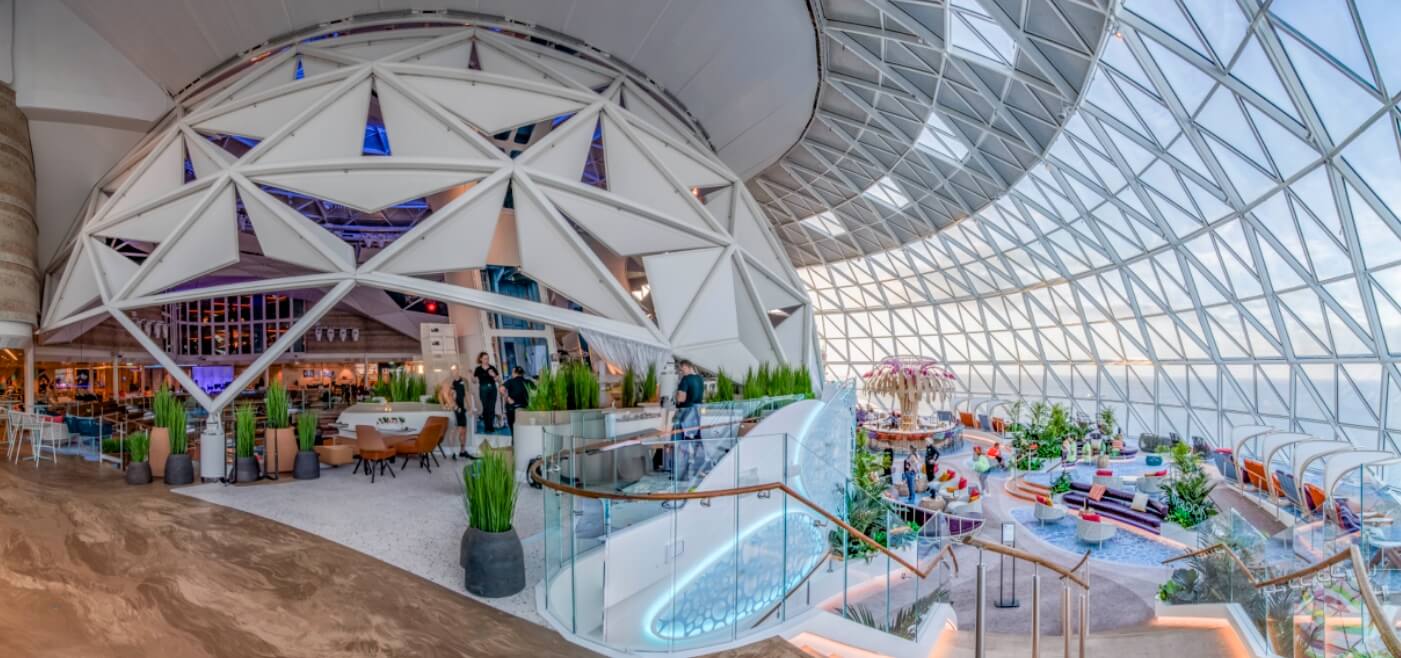
Royal Caribbean currently has 60 ships in its fleet that travel to 800 destinations around the world. Its latest vessel cost $2 billion to build and towers 20 stories. It was assembled at Meyer Turku Shipyard in Finland, but was planned in Boston. The design team prides itself for the ship’s green strategies: Icon of the Seas runs on liquefied natural gas (LNG) and fuel cell technology. This reduces carbon emissions by about 30 percent and sulfur emissions by almost 100 percent.
Certainly, the mammoth which debuted this winter is a far cry from the company’s original fleet. Royal Caribbean was founded in 1968 in Norway when three companies came together to form a maritime empire: Anders Wilhelmsen & Company, I. M. Skaugen & Company, and Gotaas Larsen.
Its first ship, Song of Norway, was 650 feet long and designed by Meyer Turku, a Finnish ship building company founded in 1795. Royal Caribbean’s second vessel was called Nordic Prince, and then came Sun Viking in 1972. Ten years later, Song of America debuted. In 1988, Sovereign of the Seas launched, followed by Nordic Empress and Viking Serenade in 1990, Monarch of the Seas in 1991, and Majesty of the Seas in 1992.
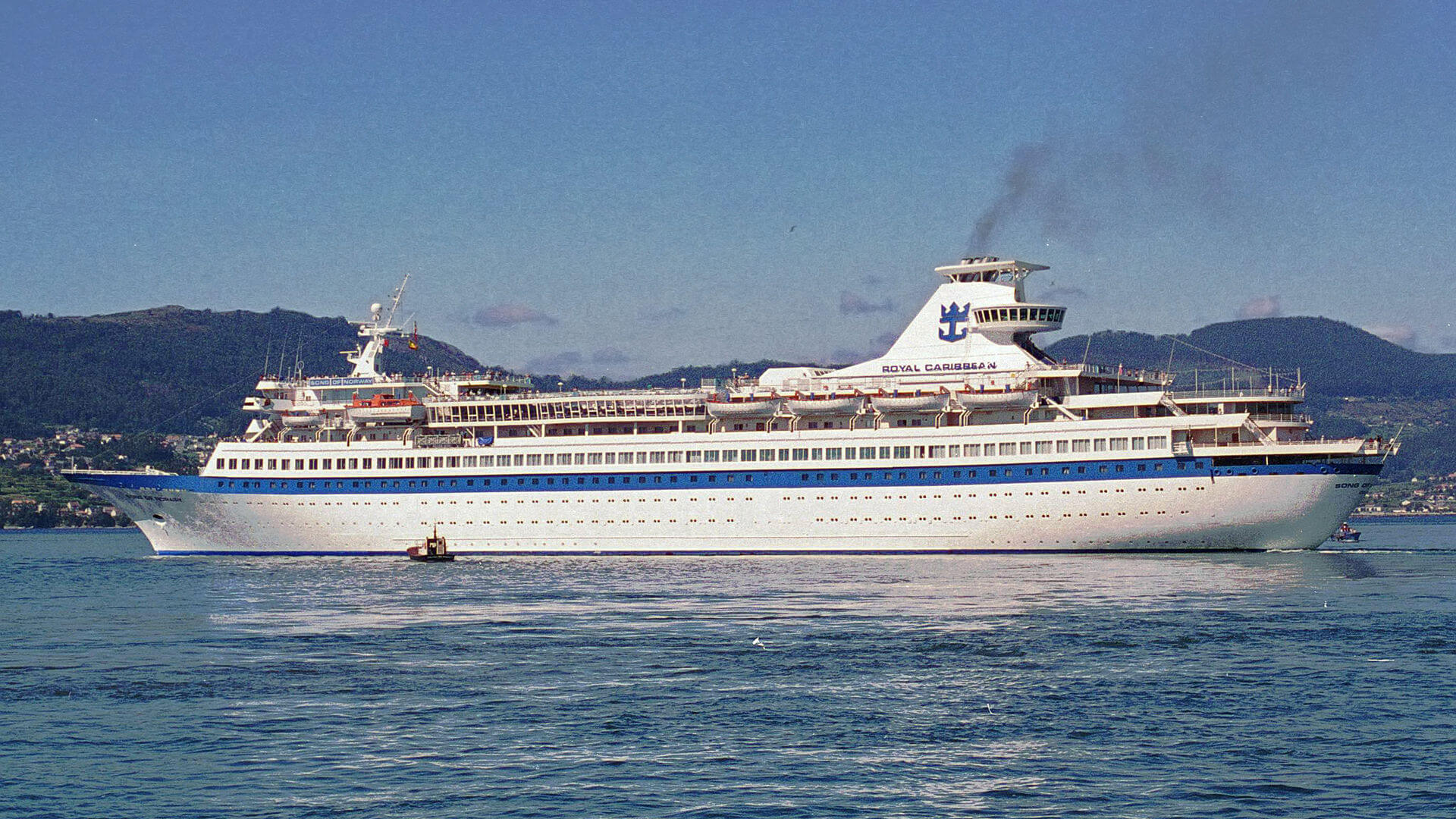
In the late 1990s, Royal Caribbean went into business with Wilson Butler Architects to pivot into the 21st century. “Decades ago, cruise ships used to be so claustrophobic and congested. Passengers used to feel like they were getting herded like cattle,” Butler offered.
Ideas for building the world’s largest cruise ship sprouted in 2016. That year, after two decades in business, Royal Caribbean’s building and innovation team asked Wilson Butler Architects to plan a ship that could hold 10,000 guests and crew members. Skylab Architecture also collaborated on the ship. The design team’s response was a vessel with, in section, three distinct zones that provided comfort across eight distinct neighborhoods.
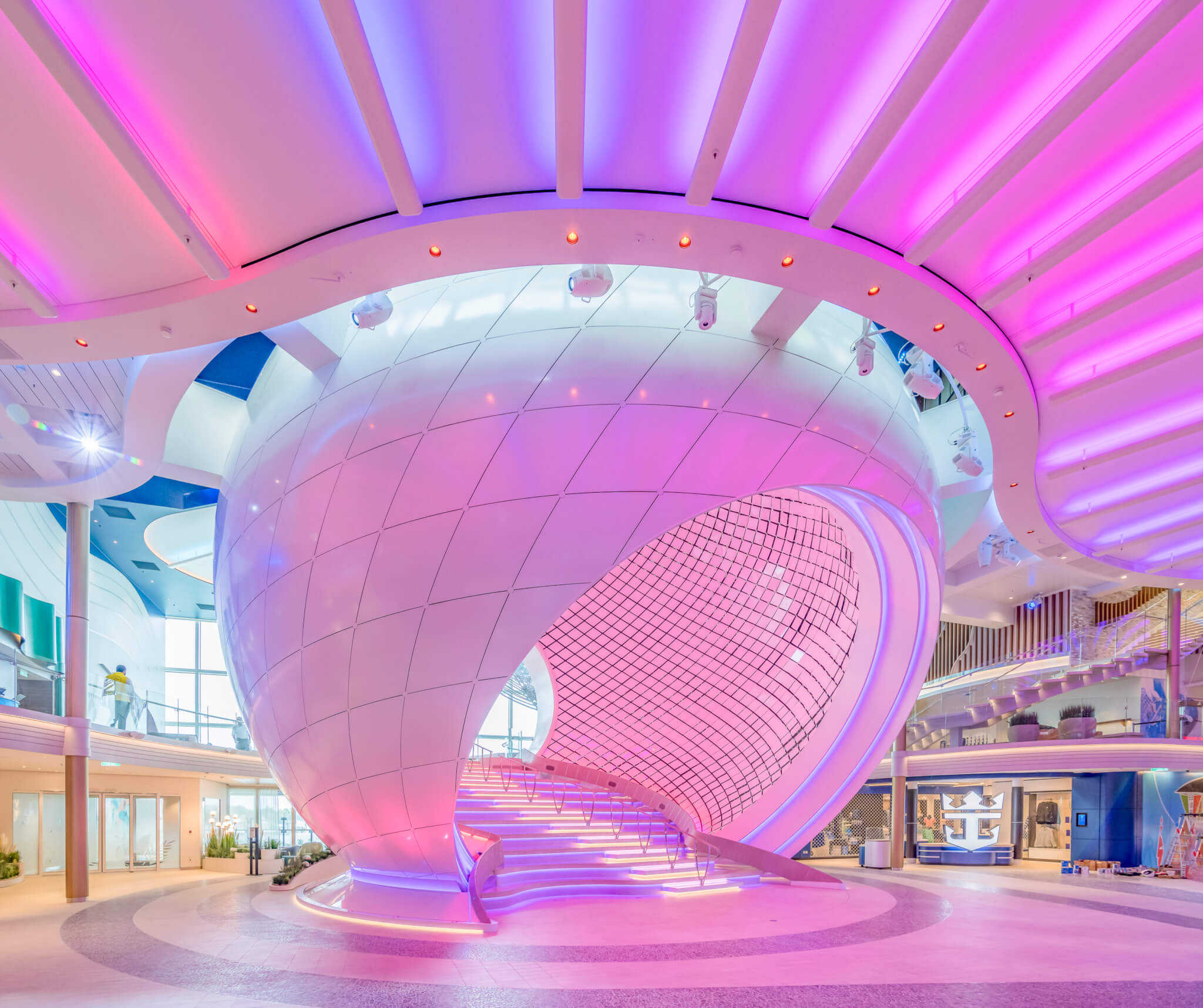
Passengers aboard Icon of the Seas have options indeed. They can enjoy the world’s “first true waterpark at sea,” WBA noted. There’s also an immersive enclosed dome where the Aqua Theater is located. Parts of the ship’s open spaces are so voluminous, they recall Biosphere 2.
Guests enter Icon of the Seas in a greeting area called The Pearl. There, a load bearing kinetic art installation 53-feet in diameter by BREAKFAST Studio, a Brooklyn office, is sited that supports the nine decks above. After The Pearl, passengers have the choice of either entering Aquadome, a 700-seat theater; or Absolute Zero, a 794-seat entertainment venue. There’s also Royal Theater, a 1,220-seat Broadway theater with a four-section orchestra lift.
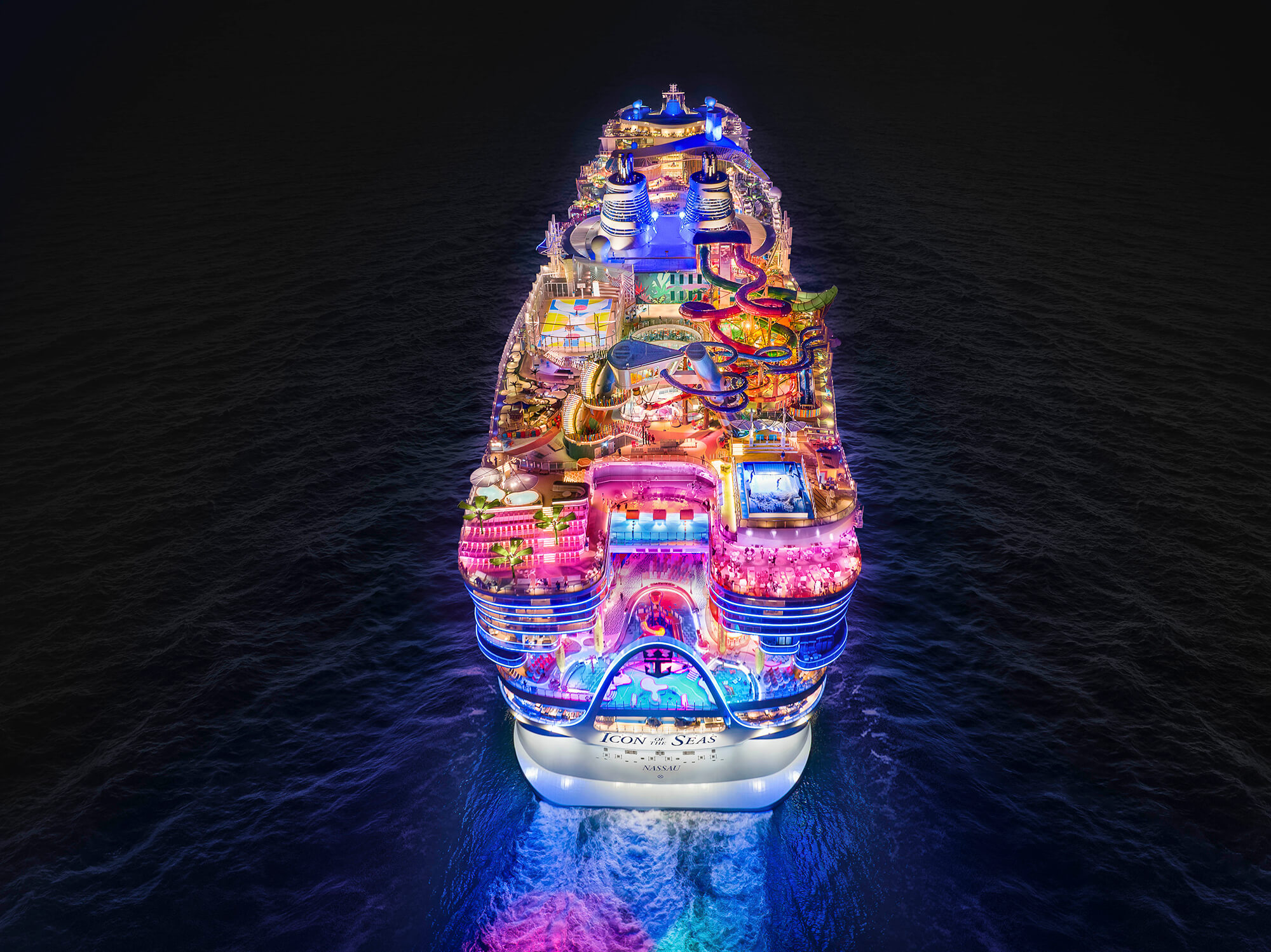
Icon of the Sea’s Central Park offers passengers lushness and greenery with more than 33,000 plants. Restaurants, bars, and a jazz club are all within walking distance from the homage to Frederick Law Olmsted.
At the heart of the ship is the Royal Promenade, a two-story area with restaurants, bars, shops, and entertainment options. From there, guests flow upwards by a monumental stair to either Surfside or Central Park without ever having to use an elevator.
Looking ahead, Royal Caribbean hopes to have three Icon of the Seas out on the open water prior to 2030.









